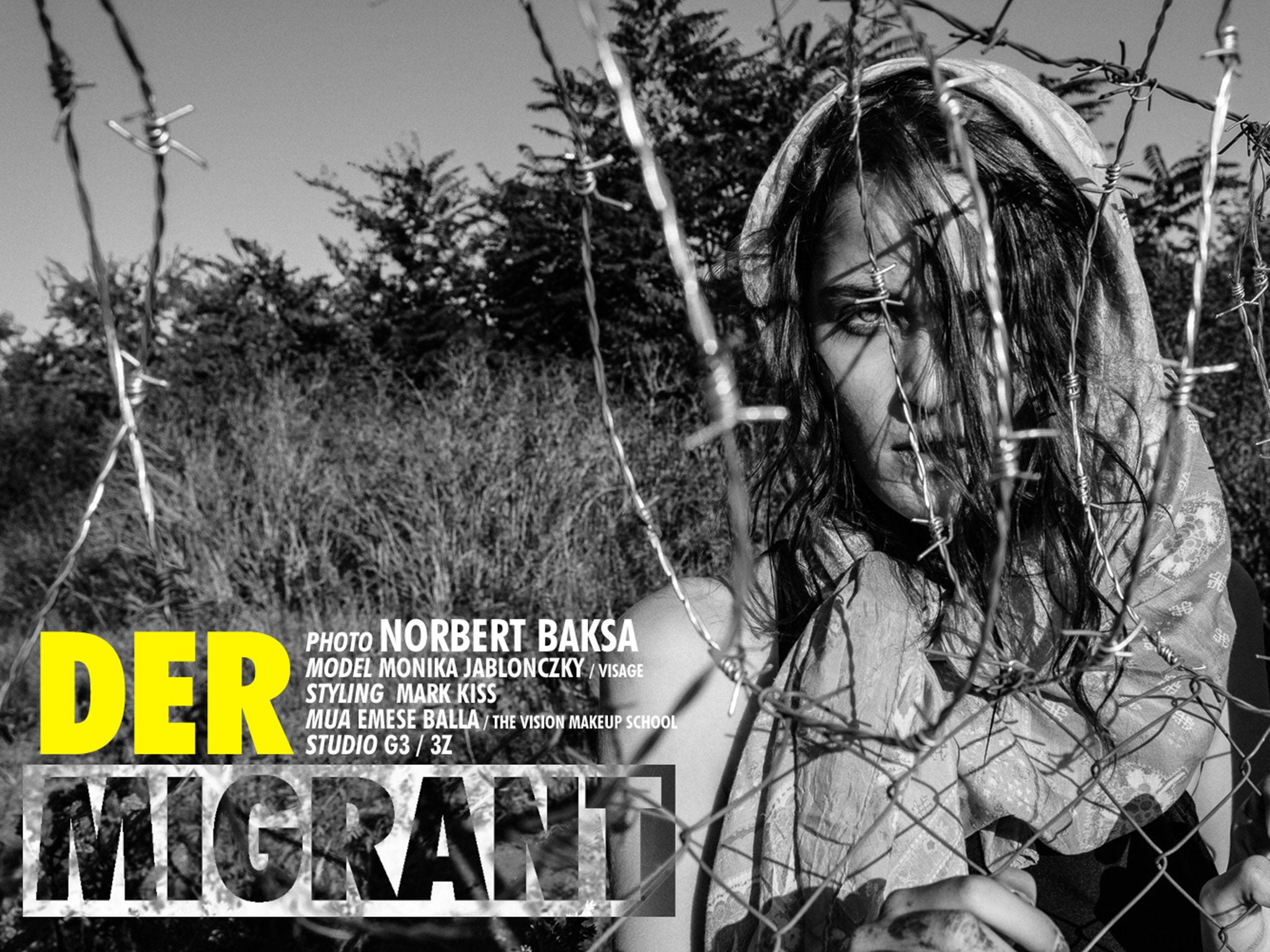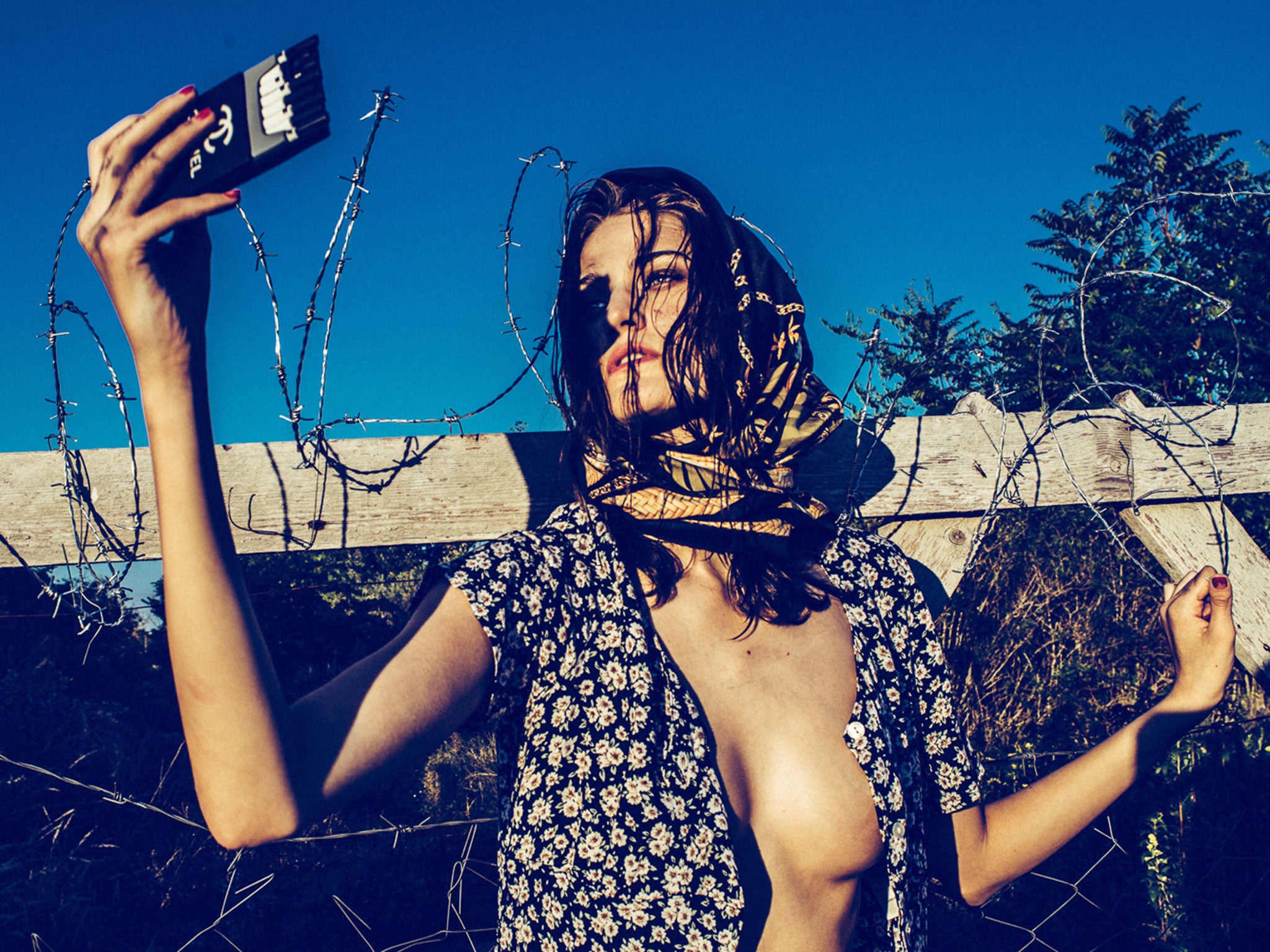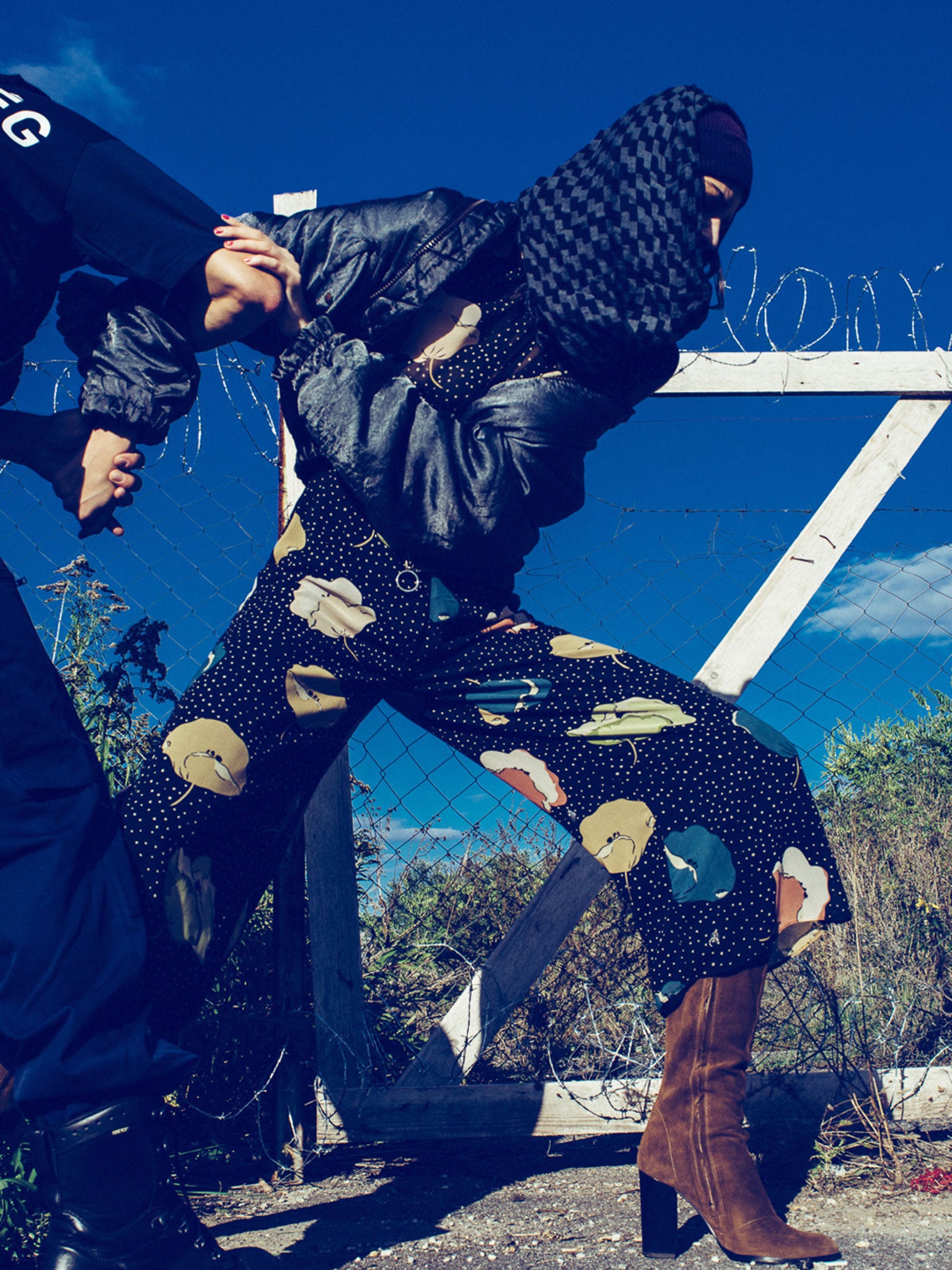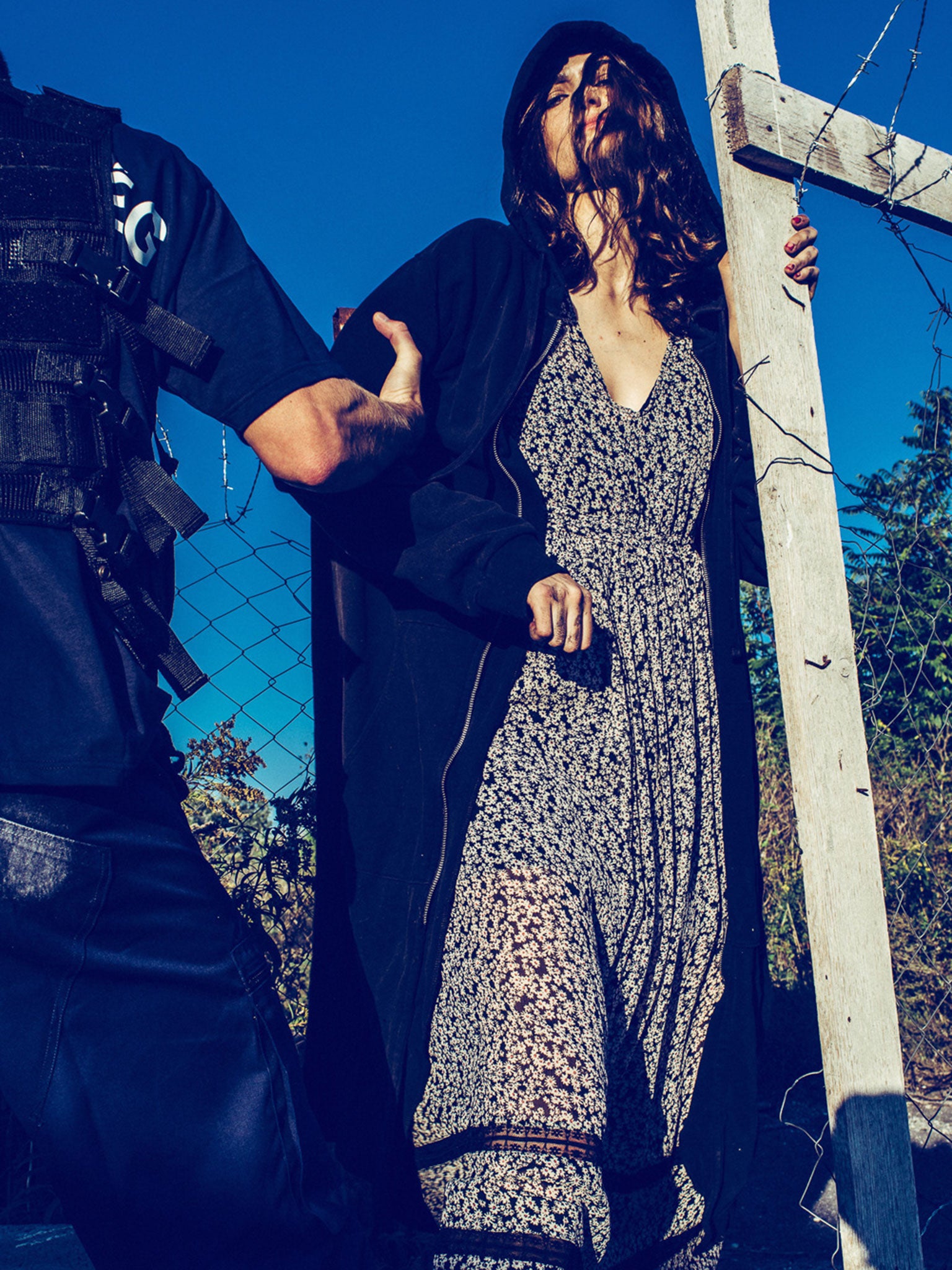'Migrant chic' photoshoot was not meant to be offensive, says Hungarian photographer
Norbert Baksa has been receiving online abuse over the images, which he said were intended to draw attention to the 'complexity' of the refugee crisis

The Hungarian photographer who sparked controversy with a fashion shoot inspired by the refugee crisis has said he did not mean to offend anyone.
Norbert Baksa photographed a female model appearing to struggle with a police officer, looking through a barbed wire fence and with her dress falling open as she took a selfie on a Chanel-branded smartphone.
The 38-year-old, who is based in Budapest, told The Independent the project intended to draw attention to the “double-edged” nature of the crisis affecting his country and make people see it from different perspectives.

“The clothes were directly inspired by the refugees themselves as you see in news reports,” he added.
“I usually refuse to deal with political topics, but this situation affects the daily lives of virtually everybody in Hungary.”
As images in the “Der Migrant” series started spreading on social media, many people accused the photographer of exploiting the humanitarian crisis and sexualising vulnerable refugees.
“Not a parody, just sick,” one person wrote on Twitter. Several people dubbed the shoot “migrant chic”, calling it “disgusting and distasteful” and “heartless”.

Others took objection to the fact model Monika Jablonczky was dressed in a way that could be deemed offensive in conservative cultures across the Middle East and sub-Saharan Africa, where many migrants are arriving from.
Others said the use of the smartphone and luxury clothes perpetuated counterproductive assumptions that some Syrian refugees are “rich” and do not deserve asylum in Europe.
Mr Baksa said that many viewers had reacted to his work from their own viewpoint and “without trying to understand the message”, but has subsequently removed the images from his website.
“These people find the pictures offensive, but we never meant to offend anybody, but rather to draw the attention to the complexity of these people’s problem,” he added.

“During the shooting, we did our best to respect people’s faith and conviction and not to cross certain boundaries.”
The Hungarian government has drawn international condemnation for its handling of the hundreds of thousands of refugees and migrants crossing its borders to enter the European Union over the summer.
After completing a controversial 110-mile long razor wire fence blocking arrivals from Serbia, it is extending the barrier along the boundary with Croatia and has shut train stations in attempts to stop families using the country as passage.
Viktor Orban, the Hungarian Prime Minister, has claimed that his country is being “overrun” by refugees, while a prominent member of his Fidesz party claimed that “the very existence of Christian Europe” was under threat.
Mr Baksa said he wanted his photography to make people realise that they are only receiving “partial or biased information” on the very complex situation.
“This is exactly what we wanted to picture,” he added. “You see a suffering woman, who is also beautiful and despite her situation, has some high quality pieces of outfit and a smartphone.
“The shoot is not intended to glamourise this clearly bad situation, but rather to draw the attention to the problem and make people think about it.
“Artists around the world regularly attract the public’s attention to current problems through ‘shocking’ installations and pictures. This is another example of such art.”
Join our commenting forum
Join thought-provoking conversations, follow other Independent readers and see their replies
Comments
Bookmark popover
Removed from bookmarks